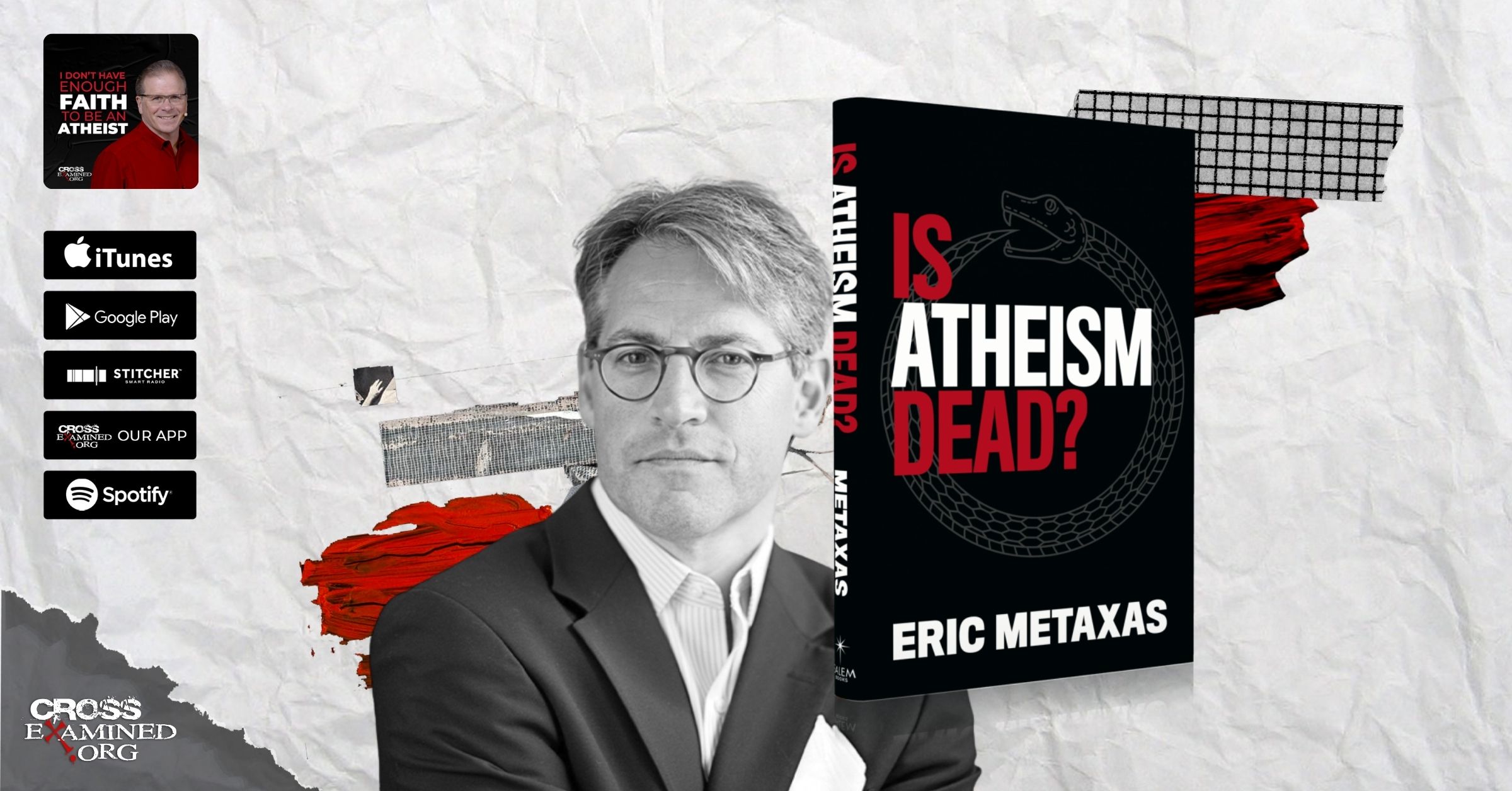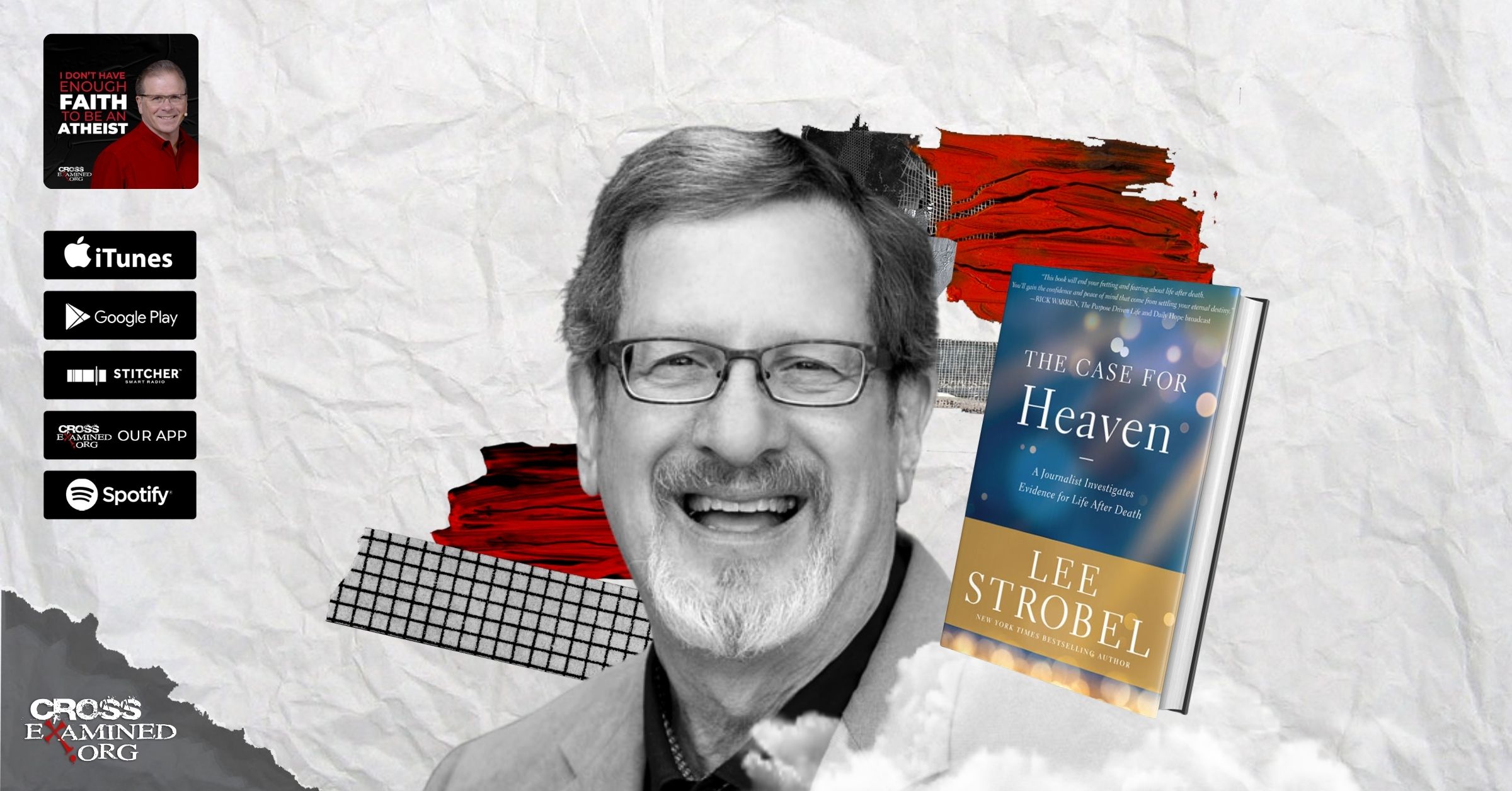By Ryan Leasure
This article is the first in a series of nine blog posts that will unpack the story of how we got our Bible. That is to say, the Bible didn’t just fall from heaven into our laps. Rather, the Bible is the result of a long process that starts from the mind of God and ends with to our modern English translations.
The process involves inspiration of texts, collecting certain books, rejecting other books, copying of manuscripts, evaluating thousands of manuscripts to recreate the originals as much as possible, translating the Hebrew and Greek texts into English, and then creating translations that are readable in our modern vernacular.
As you may have guessed, this series will deal with some of the more crucial issues surrounding the Bible—issues such as canon, the apocrypha, the Dead Sea Scrolls, pseudopigraphical Gospels, textual criticism, the King James only movement, and so much more. I hope you will follow along with me as we trace the fascinating history of the Bible. If you’re not already a subscriber, click subscribe so you can get updates on future posts.
That said, we begin with Inspiration.
Verbal-Plenary Inspiration
Paul writes, “All Scripture is breathed out by God and profitable for teaching, for reproof, for correction, and for training in righteousness, that the man of God may be complete, equipped for every good work” (2 Tim 3:16-17). A few concepts are worth noting here.
First, Paul says that Scripture is “breathed out by God” (from the Greek word “theopneustos“). Technically, God “exhales” rather than “inspires” the text. In other words, he is the source behind all Scripture.
Second, notice that God inspires Scripture, not the authors themselves. This necessary distinction means that God’s inspiration extends to the final product of Scripture itself, not the human author’s day-to-day life. Meaning, the authors were fallible while their God-breathed Scripture was not.
Third, Paul notes that ALL Scripture is inspired, not just parts of it. Some have erroneously taught that inspiration only extends to the parts that touch of faith and morals. But that is not what Paul writes. When Paul says “all,” he includes the Canaanite conquests, a talking donkey, and the Levitical Code.
Biblical Authors Affirmed Inspiration
Several times throughout the Old Testament, authors acknowledged that they were writing God’s words. Consider these examples:
“Then the LORD said to Moses, “Write this as a memorial in a book and recite it in the ears of Joshua”(Exod 17:14).
“Then the LORD put out his hand and touched my mouth. And the LORD said to me, “Behold I have put my words in your mouth” (Jer 1:9).
“The word of the LORD that came to Hosea, the son of Beeri, in the days of Uzziah” (Hos 1:1).
“On the fifth day of the month . . . the word of the LORD came to Ezekiel the priest, the son of Buzi . . . and the hand of the LORD was upon him there” (Ezek 1:2-3).
Furthermore, New Testament authors affirmed the Old Testament’s inspiration:
“And this took place to fulfill what the Lord had spoken by the prophet . . .” (Matt 1:22).
“Brothers, the Scripture had to be fulfilled, which the Holy Spirit spoke beforehand by the mouth of David concerning Judas” (Acts 1:16).
“But what God foretold by the mouth of all the prophets, that his Christ would suffer, he thus fulfilled.” (Acts 3:18).
“David himself, in the Holy Spirit, declared, The Lord said to my Lord, Sit at my right hand, until I put your enemies under your feet” (Mark 12:36).
This last quotation is from Jesus’ lips himself. That is to say, Jesus affirmed the Old Testament’s inspiration.
What About the New Testament?
When Paul writes that “All Scripture is breathed out by God,” he was most likely referring to the Old Testament since the word for Scripture (“graphe“) refers to the Old Testament when it’s used in the New Testament. We must also remember that when Paul wrote this letter, portions of the New Testament had yet to be written. Was inspiration, then, limited to the Old Testament? No it wasn’t.
Notice how Peter speaks of Paul’s letters in 2 Peter 3:15-16: “Just as our beloved brother Paul also wrote to you according to the wisdom given him, as he does in all his letters when he speaks in them of these matters. There are some things in them that are hard to understand, which the ignorant and unstable twist to their own destruction, as they do the other Scriptures.” Peter appears to be lumping in Paul’s letters with the Old Testament and granting them equal authority.
First Timothy 5:18 is another crucial text on this matter. Paul writes, “For the Scripture says, ‘You shall not muzzle an ox when it treads out the grain,’ and, ‘The laborer deserves his wages.’” Paul quotes two passages in this verse and refers to both of them as Scripture. The first text comes from Deuteronomy 25:4. The second comes from Luke 10:7. That is to say, Paul thought the Gospel of Luke was Scripture on par with the Old Testament.
We even have some clues that suggest the apostles knew they were writing God’s Word. Paul writes in 1 Corinthians 14:37, “If anyone thinks that he is a prophet, or spiritual, he should acknowledge that the things I am writing to you are a command of the Lord.” Additionally, Paul declares in 1 Thessalonians 2:13, “And we also thank God constantly for this, that when you received the word of God, which you heard from us, you accepted it not as the word of men but as what it really is, the word of God.”
Peter also remarks, “You should remember the predictions of the holy prophets and the commandment of the Lord and Savior through your apostles” (2 Peter 3:2). The apostles, then, believed that they spoke authoritatively from God. And they could do this because Jesus promised them that the Holy Spirit would guide them in the process (John 14:26; 16:13).
Mechanical Dictation?
Peter notes, “Knowing this first of all, that no prophecy of Scripture comes from someone’s own interpretation. For no prophecy was ever produced by the will of man, but men spoke from God as they were carried along by the Holy Spirit” (2 Pet 1:20-21). Some suggest that the Holy Spirit’s activity sounds an awful lot like mechanical dictation. But this would be a mistake. As I alluded to earlier, inspiration extends only to the final product of Scripture. Meaning, God worked within and through the human authors’ skills, personalities, and experiences as they wrote their various works. In short, the dozens of biblical authors produced their Scripture in different ways.
The author of Hebrews makes this point when he begins, “Long ago, at many times and in many ways, God spoke to our fathers by the prophets” (Heb 1:1). Notice how he affirms that the prophets spoke “in many ways.” And Scripture makes these different ways abundantly clear. Consider a few examples:
- Investigation/Interpretation: “Concerning this salvation, the prophets who prophesied about the grace that was to be yours searched and inquired carefully, inquiring what person or time the Spirit of Christ in them was indicating when he predicted the sufferings of Christ and the subsequent glories” (1 Pet 1:10-11).
- Dictation: “To the angel of the church in Ephesus write . . .” (Rev 2:1)
- Research: “Inasmuch as many have undertaken to compile a narrative of the things that have been accomplished among us, just as those who from the beginning were eyewitnesses and ministers of the word have delivered them to us, it seemed good to me also, having followed all things closely for some time past, to write an orderly account for you, most excellent Theophilus” (Luke 1:1-3).
Additionally, biblical authors wrote poetry, wisdom literature, letters, and prophecy. And in doing so, God worked through them in such a way as to not override their unique perspective. At the same time, he superintended the process to guarantee that his exact message was communicated. As the Chicago Statement on Biblical Inerrancy remarks, “We affirm that God in His Work of inspiration utilized the distinctive personalities and literary styles of the writers whom He had chosen and prepared. We deny that God, in causing these writers to use the very words that He chose, overrode their personalities.”1
Evidence of Inspiration
Some argue that inspiration appeals to circular reasoning because we must appeal to Scripture itself to affirm inspiration. While that’s a fair critique, Christians are right to appeal to Scripture because it is our highest authority. If we appeal to, say human reasoning, then we elevate human reasoning to a higher authority than Scripture.
That said, we have good evidence for inspiration in fulfilled prophecy. I could list dozens of fulfilled prophecies, but I will only mention two briefly. First, Isaiah 53 correctly predicts Christ’s crucifixion. Of note is the fact that Isaiah says that he will “pierced for our transgression” (Isa 53:5). This method of death is significant because at the time, Jewish methods of execution were stoning or hanging. How could Isaiah rightly predict the kind of death Jesus would suffer seven hundred years in advance?
Another example is Daniel 9. While I won’t go into detail, Daniel predicts the exact timing of Christ’s arrival. More than that, Daniel says that the Messiah will be “cut off” (killed) just prior to the destruction of Jerusalem and the temple. Jesus was crucified in AD 30. The Romans destroyed Jerusalem and the temple in AD 70.
Inerrancy
Inerrancy naturally follows from inspiration. In other words, if God is the author behind the entire Bible, it must all be true because God always speaks truth. Consider the following texts
“It is impossible for God to lie” (Heb 6:18).
“You are God, and your words are true” (2 Sam 7:28).
“Every word of God proves true” (Prov 30:5).
“Sanctify them in the truth; your word is truth” (John 17:17).
Notice that Jesus doesn’t just say that God’s word is true, but it is TRUTH. It is the absolute standard of truth. And lest anyone thinks this idea of inerrancy is a modern invention, listen to a few of the church fathers:
“You have searched the Scriptures, which are true and given by the Holy Spirit. You know that nothing unrighteous or counterfeit is written in them.” — Clement of Rome, 1st century
“The statements of Holy Scripture will never contradict the truth.” — Tertullian, 3rd century
“It is the opinion of some that the Scriptures do not agree or that the God who gave them is false. But there is no disagreement at all. Far from it! The Father, who is truth, cannot lie.” — Athanasius, 4th century
In short, while Scripture does not give us exhaustive knowledge of all things (how to change a tire for example), it does not affirm anything that is contrary to fact.
The Next Post
The next post will consider how the Old Testament came to be. Specifically, it will address the unfolding nature of the Old Testament, its authors and editors, as well as its preservation.
Recommended resources related to the topic:
Why We Know the New Testament Writers Told the Truth by Frank Turek (DVD, Mp3 and Mp4)
Oh, Why Didn’t I Say That? Is the Bible Historically Reliable? by Dr. Frank Turek DVD, Mp4, Mp3 Download.
Cold-Case Christianity: A Homicide Detective Investigates the Claims of the Gospels by J. Warner Wallace (Book)
__________________________________________________________________________________________________________________________________________________
Ryan Leasure holds a Master of Arts from Furman University and a Masters of Divinity from the Southern Baptist Theological Seminary. Currently, he’s a Doctor of Ministry candidate at the Southern Baptist Theological Seminary. He also serves as a pastor at Grace Bible Church in Moore, SC.
Original Blog Source: https://bit.ly/3BXULYy




 I was first introduced to Dr. Emerson Eggerichs’ work about a decade ago when my wife and I were at the local Christian bookstore, and one of his books about communication in marriage was on sale. I picked it up and found that it was on target with what Scripture taught about male and female communication and what my wife and I had experienced in our own marriage. After reading his flagship book “
I was first introduced to Dr. Emerson Eggerichs’ work about a decade ago when my wife and I were at the local Christian bookstore, and one of his books about communication in marriage was on sale. I picked it up and found that it was on target with what Scripture taught about male and female communication and what my wife and I had experienced in our own marriage. After reading his flagship book “






